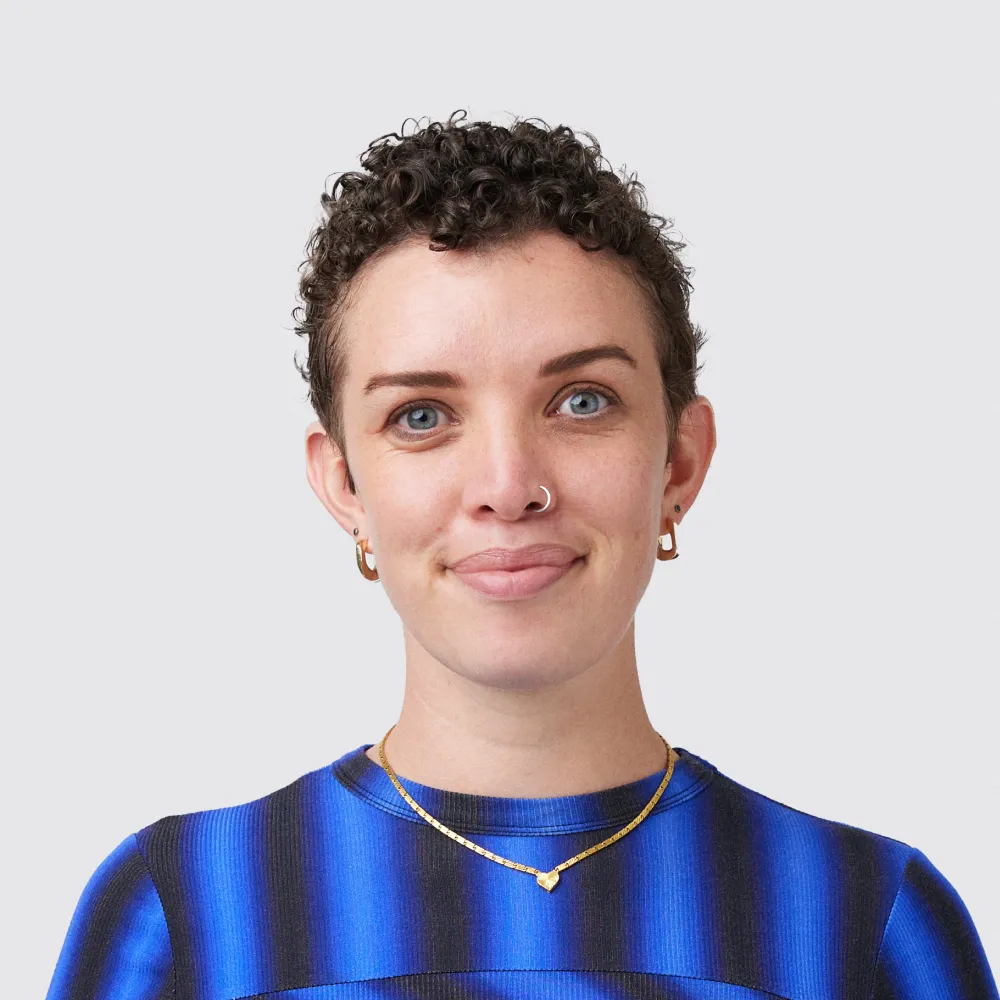Fitted for Work have been helping women, non-binary and gender-diverse job seekers for nearly 20 years to become job-ready and find meaningful employment. In the beginning that meant access to the right work wardrobe, but now it includes helping women stay in work and navigate their world of work, long term.
Donna knows that noticing early signs of struggle can prevent a long chain of disempowering events for women who are doing it tough. We caught up to hear about how Fitted for Work is rising to the challenge amidst the cost-of-living crisis.
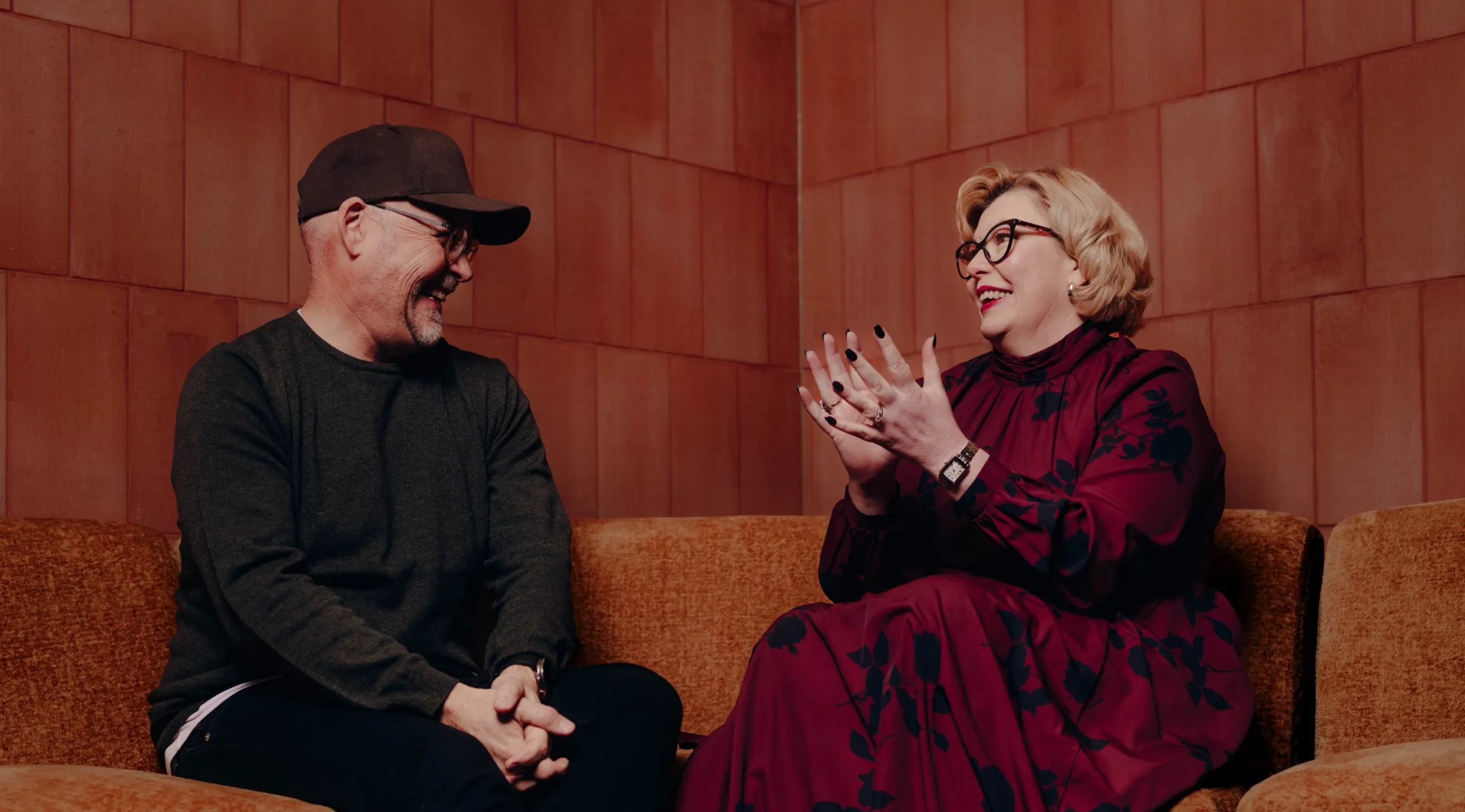
Donna de Zwart, Managing Director at Fitted for Work
Mark Davis, Head of Digital at Today
Thanks for coming in to chat with us today Donna. You’ve assisted 45,000 people since 2005, that’s huge. Can you tell us more about the vision?
We believe every woman is entitled to economic security and independence. One of the best ways for her to achieve that is through employment. We know that whilst money doesn't solve all problems—and money doesn't buy happiness—what it does buy people is choice. Choice on how you want to live your life, whether it's leaving a really bad situation and writing a new story for yourself, or just being able to imagine a better future for yourself. What sits behind that, is equal opportunity.
How have your services evolved over the past 20 years from clothing to what it is now?
If you think about what the landscape was like 20 years ago, finding reasonable workwear was not an easy thing to do. We didn't have fashion options like we do now. Also the barriers that women face in participating in the workforce are becoming increasingly complex. We never see a woman with just one barrier, it's multi-layered and intersectional. So the need has grown, and as a result, our services have had to develop.
For example, prior to COVID, hardly anyone was interviewed via zoom. That whole landscape has changed. No longer do you walk into a workplace for a face-to-face interview. Now your first interview will be over zoom. So we needed to add services.
That's how we continue to evolve and grow, depending on the landscape and the political and economic climates.
So it did start off very simply as clothing and basic resume services, but has evolved to services that get women ready for work, help women find work, and also to help women stay in work and navigate their world of work.
The reasons why women might come to us are very varied. And often I'm asked, “Who are the women that you work with?” They are your mothers, friends, colleagues. If you think about the spectrum of life's experiences, because of the way our systems are set up, women are more vulnerable when it comes to any sort of crisis that might happen, they're the first ones to fall over.
So if, for example, a woman is a survivor of domestic violence, and hasn't worked for 10 years because her partner has not allowed her to work, she is going to need a whole suite of services. It's very different from a woman who's over 55, worked all her life, and suddenly, her role is made redundant, and the workforce doesn't want her anymore.
For the woman escaping domestic violence, she'll need a pre-service if you like, because her number one issue is going to be about confidence because she thinks she doesn't have any skills at all. So we will need to work with her on all of that. Whereas a woman who's spent all her life in the workforce, she won't need an outfitting service, but she'll definitely need someone to help her with her resume. Because she hasn't had one of those in 10 years.
So it did start off very simply as clothing and basic resume services, but has evolved to services that get women ready for work, help women find work, and also to help women stay in work and navigate their world of work.
Donna de Zwart, Managing Director at Fitted for Work
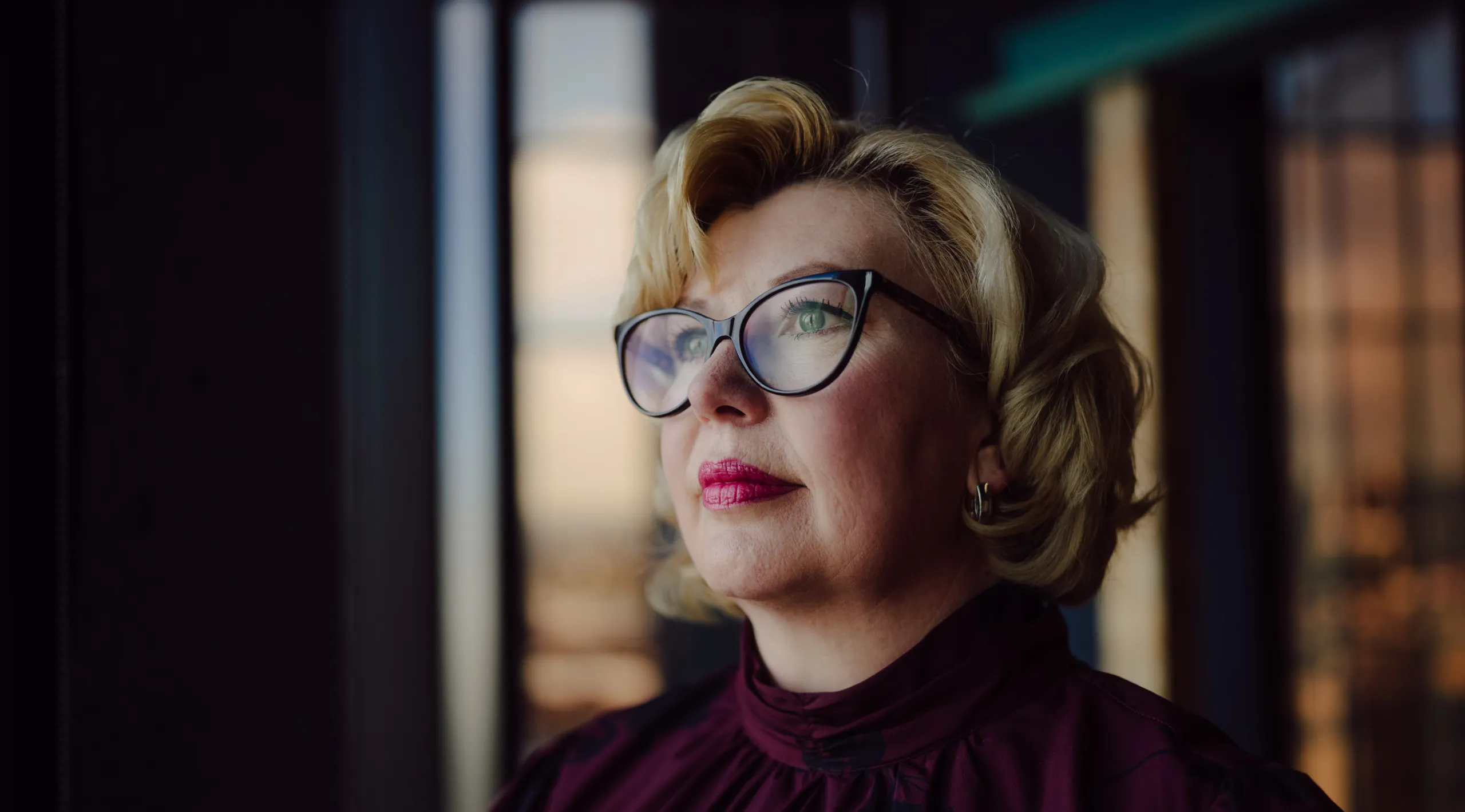
How do you build an understanding of the services that someone might need?
The initial call will come through to our referral officers. They will have a conversation to understand a little bit more about a woman's story, and I think that's probably our strongest point, we make a safe connection right there. The woman will learn a little bit about our service upfront, but straightway she’ll understand it's a service created by women, for women and delivered by women. So it’s a safe space already.
Often we will hear the full story. It won't just be, “I need a job.” It will be, “I need a job. Because here's what's happened.”
Women, by their nature, need to tell their stories. I think in the current system, in particular if you think about the way the government system currently works, there's no room for the story. And people need validation around their stories. They need someone to say, “That must have been really hard for you.”
It's hugely important and I think it gives them back a sense of pride and agency when someone hears their story.
Once we've done a bit of an assessment we can say, all right, first step will be a workshop to talk about where you’re at and the second step might be outfitting because that’s a really lovely way to connect and support.
I love the part around a restoration of pride.
We often don't talk about the link between employment, pride and belonging. We know how important it is from an economic perspective, but I think the power of work and your sense of self is incredibly important. People often don't realise this until they're staring down the barrel of retirement and they're asking themselves, “Who am I without work?”
I agree. We talk a lot about that idea. I've never loved the idea of work being a family—I think family is family—but I do love the concept of the community of work. It’s a big part of who you are and how you identify. And often it's the first thing you get to ask, isn't it? “What do you do for a living? What gets you up in the morning? What are you driven by? Where is that passionate fire?”
So I can see that reclaiming that and finding a safe space to connect would be huge.
Yes, for anyone who has ever had the experience of their role being made redundant, or not being able to land a job. In that case, I think the number one feeling that they have is that they don't belong. ‘Nobody wants me and I don't belong.’ So that sense of missing a community is absolutely right.
There’s also the loss of agency and it happening without your control. It's a really disturbing feeling. Being made redundant happened to me some time ago from big corporate, and I still have that feeling of having no control. I was at work one week, and then I was not the next. It was a really unsettling feeling. And it's nothing compared to some experiences that I'm sure some of the people you serve have had.
It's a human experience of, “They don't want me. It can be explained to you in economic terms. But at the end of the day, the overwhelming feeling is I don't belong. Is there something I've done wrong? Am I not enough?”
...it's a service created by women, for women and delivered by women. So it’s a safe space already.
Donna de Zwart, Managing Director at Fitted for Work
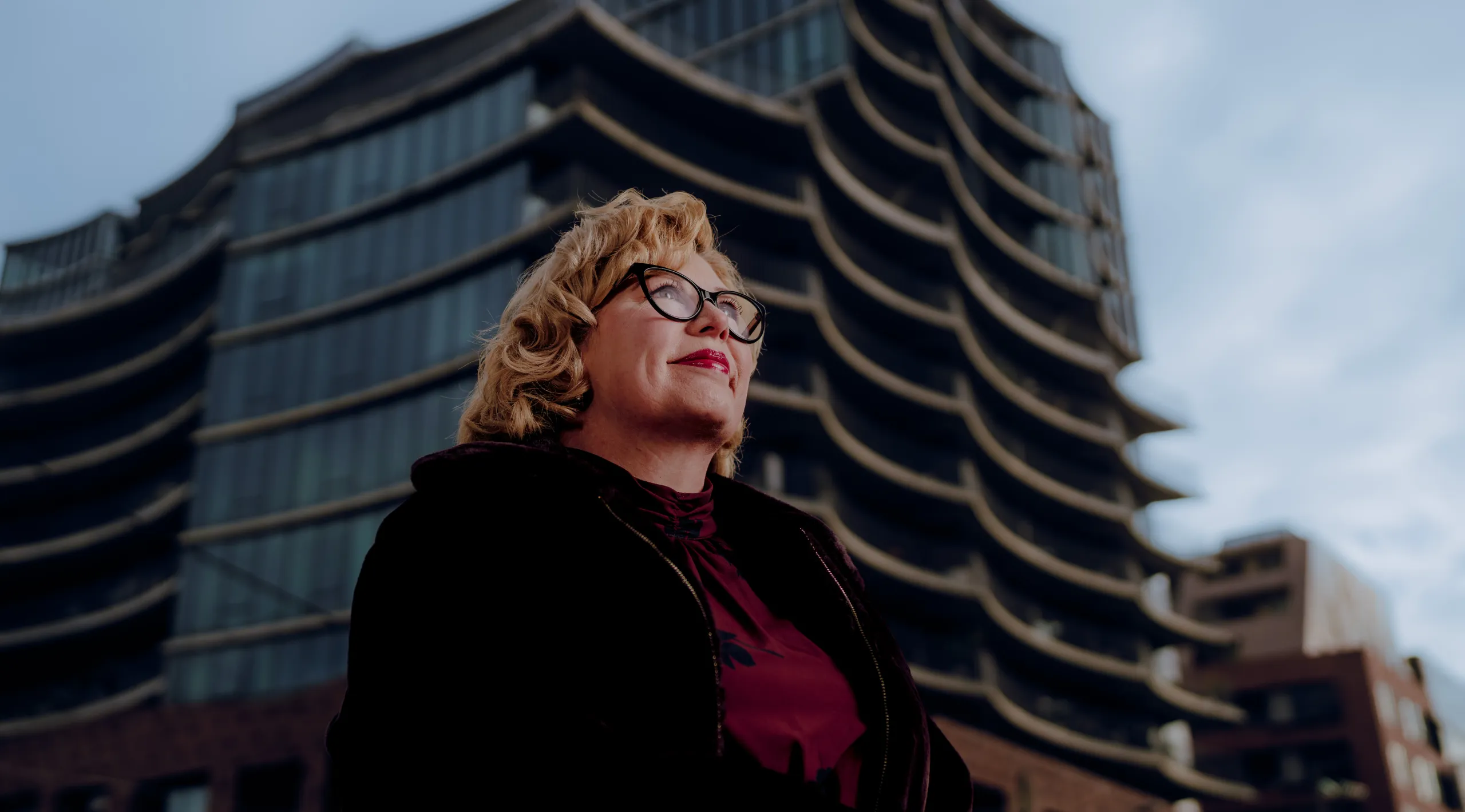
In your role as a change maker—as someone so passionate, with a couple of decades in this business—what are the things that keep you up at night?
What doesn't keep me up is that I know we do great work. And I know that we have a formula that works. I totally believe in the process and how we go about things.
What does keep me up at night is the financial sustainability of an organisation like ours as well as the value put on our people and the important work they do.
We do everything we can to look after our people, but I know that—and this is more a criticism of the industry, lots of organisations that work in the not-for-profit space struggle with this—we don't pay our people enough, the work is not valued enough. We fill big gaps in terms of what the government can't do, and yet, the value of our work is not recognised. We see that across nursing, teaching, care-giving and non-profits. That disturbs me. How do you incentivise and keep good people?
I think it's come to the fore because of the cost of living crisis. We do what we can within our limited means. I know how important it is for our staff to know that there's tea, coffee, bread, milk, snacks and that our offices are adequately heated, and so on.
Is there a flow between the women you initially support and the women you employ?
Yes, quite often. That's one of the things that we really emphasise with our social enterprise. Every time we sign another contract we employ women we’re actually working with. We're trying to make it as circular as we can.
What is it about financial stability that is so tricky?
30% of our funding comes from trusts and foundations. That's incredibly volatile. When you're doing your budget for the year, you don't know what will land. And the effort you put in for a $5,000 grant is often the same for a $500,000 grant. When I started with the organisation 10 years ago, a $10,000 grant went some way to addressing a need, ten years later the grant value is still $10,000. It hasn’t kept up with inflation over time. So that contributes to the volatility. There are also more players in the space and I feel like there's a greater sense of desperation now more than ever.
Nearly 40% of our funding comes from our two social enterprises that we’re constantly trying to grow. And the third way we get our funding is through donors and fundraising campaigns. And again, yeah, that's getting tougher and tougher.
Where we are getting the biggest bang for our buck is through the growth and development of our two social enterprises.
The Conscious Closet is one of our social enterprises. All the clothing donations we get come from individuals and also increasingly from retail partners. We get a lot of new stock thankfully. It's not just clothing, it's all apparel—so shoes, handbags, jewellery, underwear, and toiletries—absolutely everything.
Because we've been around as long as we have, people know where the donations are going, so we get the best quality. And I also think that people who are donating have invested in good clothing and they want to see that investment live on.
Thankfully, the women of Victoria shop for all of Australia. People laugh about that, but it's true. So we get the most amazing things, we will get top end designer goods and then we also get the weird and the wacky.
Give me one weird and wacky.
Sequined jumpsuits. I might want to wear that to a job interview, but not other people.
Fantastic.
The second social enterprise started about six years ago. It’s called Supervention and is an early intervention offering.
We realised that often women are not great at asking for help. What they'll do is wait, they will go through all their savings, they will access their Super if they have any, and then they'll be literally googling how to live out of their car. And that’s when they think, “Oh, now need a charity's help.”
We know that if we can get to women much earlier on in that process, then they avoid using up their savings, accessing their super, or living out of their car.
So we thought, okay, who are the organisations that get those first warning signs, and we started with financial institutions. So, a late repayment on a mortgage, a credit card payment that's not made, that's the first warning sign something’s not right.
Often what a bank will do is refer you to a hardship team. A Financial Assistance Officer will say, “What's the issue?” If it is no work or not working enough they will offer our services. We set up a hotline directly with the bank, and the bank refers that woman to us and also pays for the service.
The woman can choose whether she wants to use the services or not, and nearly 80% say yes. At the moment we're working with CommBank, ANZ and Westpac and we're expanding to everywhere they might be a hardship team—think utilities, telcos and so on.
There's no good referring someone to a financial counsellor, if there's no income coming in. Really, the only way out is to earn an income.
It feels like an important partnership.
It's really, really important. There are lots of regulatory requirements for financial institutions and utilities to be more responsible around their most vulnerable customers. That’s where we can partner and provide real solutions that benefit all.
Do you get requests for services for men?
We do. We always have right from our inception. We believe that the formula that we have would work for men as well, but we acknowledge it would need to be a completely separate service. Many women who come through our services are survivors of domestic violence or presently living in that situation. Both men and women need to feel safe in their own space.
It’s a crisis.
It is a crisis. We're at a critical point in our social history. We've got to do something. Because it's increasing, it's not decreasing. We are seeing a direct relationship with the cost of living crisis and the rising number of cases. The research tells us that DV and poverty go hand in hand, often long after the abuse ceases.
We know that if we can get to women much earlier on in that process, then they avoid using up their savings, accessing their super, or living out of their car.
Donna de Zwart, Managing Director at Fitted for Work
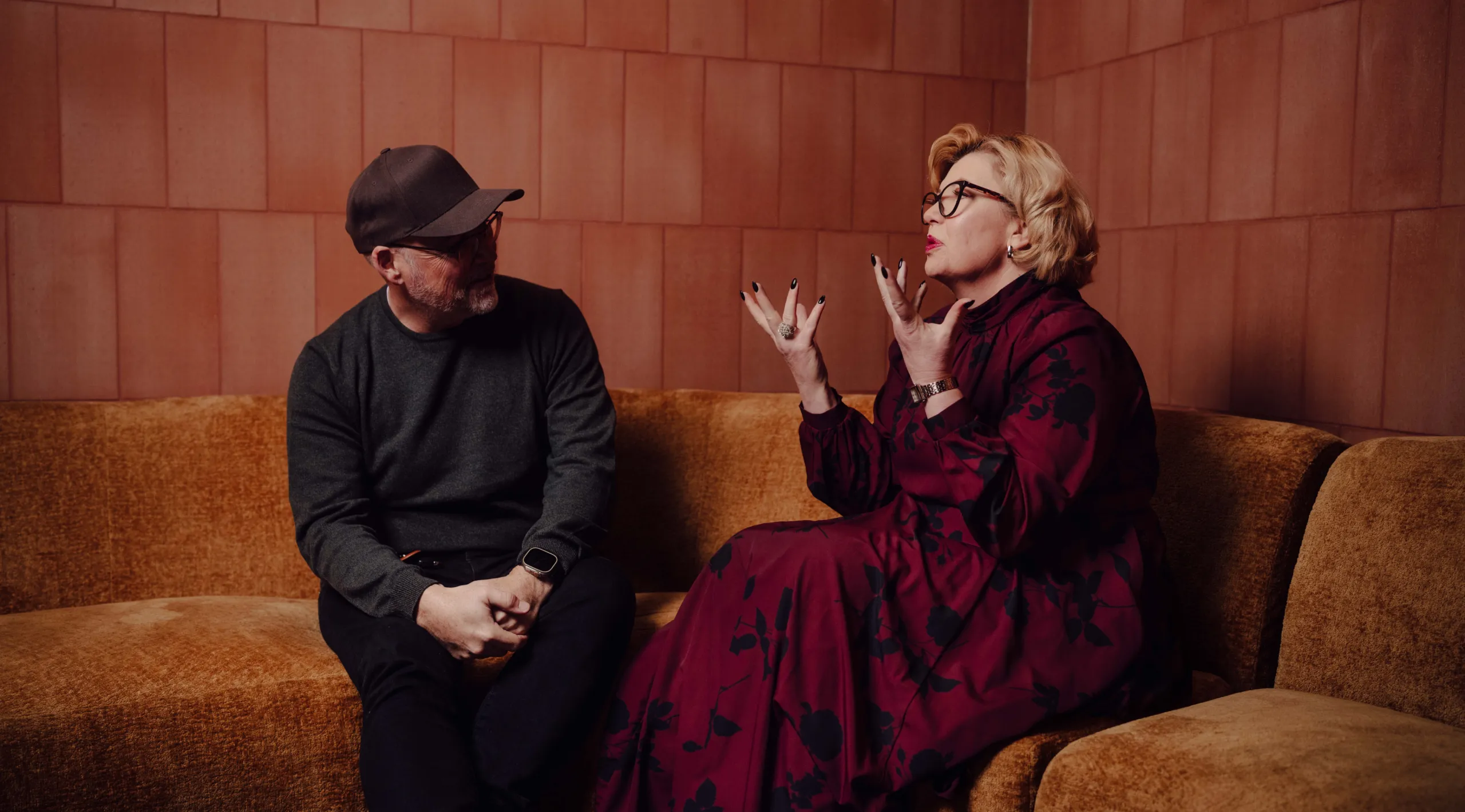
What are you working on at the moment?
One of our issues is brand amplification, it's an integral part to increasing our reach and the other is accessing funding. We have great partners in Victoria because that's where we started. But we are national, and we do need to build awareness and partnerships in other states.
I’ll use International Women's Day as an example. That's often when we get a big call out asking, “Can you come and speak?” And a lot of it—I have to say—is tokenistic. But what disturbs me more is that much of it is internal facing and I think organisations can do a lot more.
The first organisation that we've worked with that has been prepared to do that is Coles. They do a big campaign leading up to International Women's Day. It's not only a way of raising funds, but it's an external-facing culture piece. That means it's not just about what's right, but it's also about what makes good business sense. Think about who their customers are? Who are the people that work for them? And if you're an organisation that's in a male-dominated field, but you want to attract more female customers or even more female employees, this is a great way. We're so often talking and preaching to the converted, I'd like to be talking more to those who are asking the question, “Why don't women want to come and work for us?” The thing we often hear is, “We can't find the women”, which is never true, they’re out there.
One of the projects we're looking to fund is to start working with young women when they're 14 years and nine months, when they're ready to start their first jobs, particularly in lower socio-economic parts of our community. Let's start the conversation then with them. Let's start them on that journey early so they understand what value work gives them, what earning money means, and how it contributes to independence.
What do the next 5-10 years look like for Fitted for Work?
We've just done our strategic plan and a big part of it is storytelling. People need to hear the stories. So how do we get those stories out there? When people identify with the stories, it’s often, “Oh, I was that woman, or my sister is in that situation.” Amplifying those stories is really important to connect people to what we do.
But the big message here is that we want to shift the needle around gender equality and ask, “When will we start to value women’s work?”
...we want to shift the needle around gender equality and ask, “When will we start to value women’s work?”
Donna de Zwart, Managing Director at Fitted for Work
